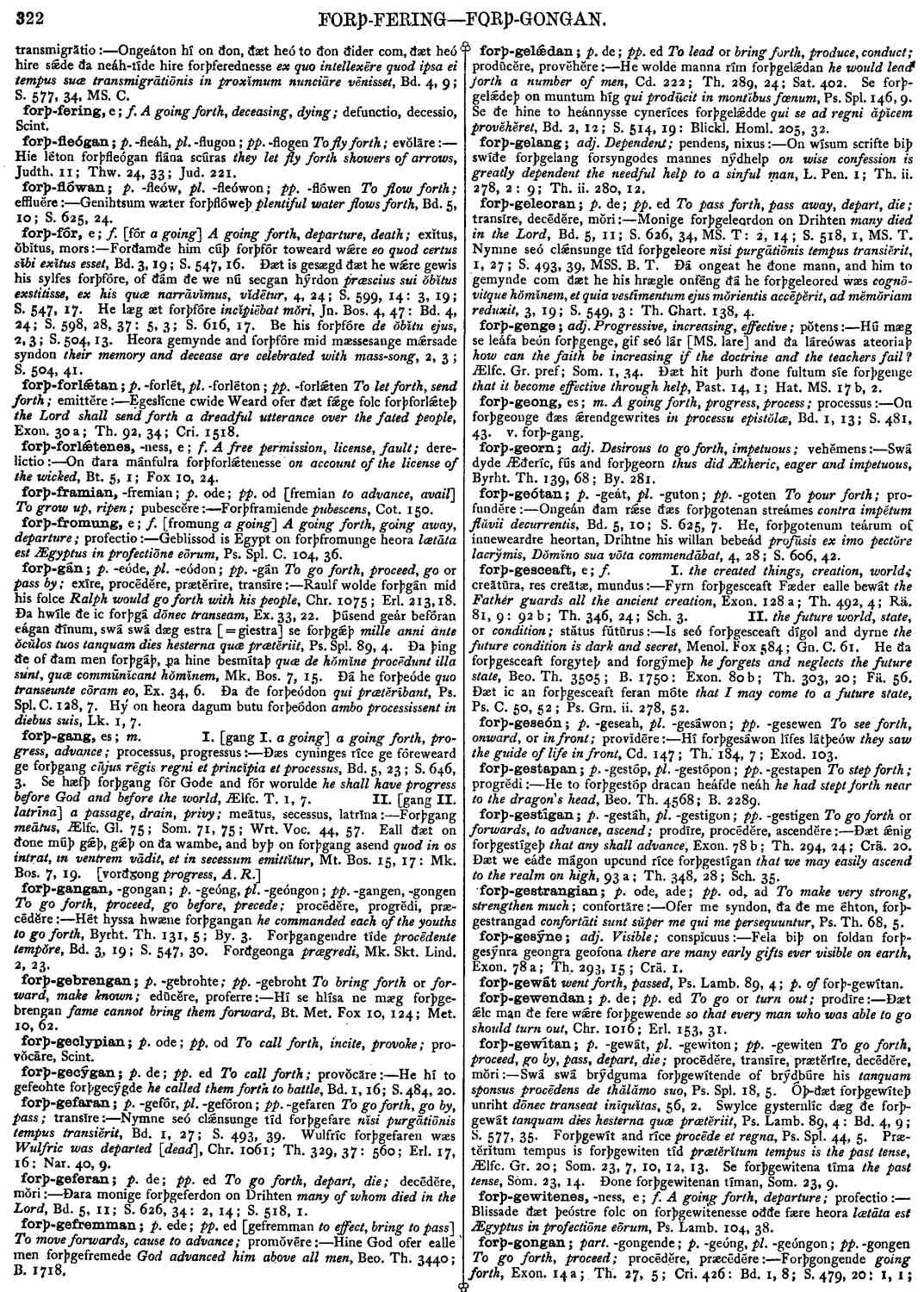forþ-gewítan
- verb [ strong ]
-
Swá swá brýdguma forþgewítende of brýdbúre his
tanquam sponsus procēdens de thălămo suo,
- Ps. Spl. 18, 5.
-
Óþ-ðæt forþgewíteþ unriht
dōnec transeat inīquĭtas,
- 56, 2.
-
Swylce gysternlíc dæg ðe forþgewát
tanquam dies hesterna quæ prætĕriit,
- Ps. Lamb. 89, 4: Bd. 4, 9 ;
- S. 577, 35.
-
Forþgewít and ríce
procēde et regna,
- Ps. Spl. 44, 5.
-
Prætĕrĭtum tempus is forþgewiten tíd
prætĕrĭtum tempus is the past tense,
- Ælfc. Gr. 20 ;
- Som. 23, 7, 10, 12, 13.
-
Se forþgewitena tíma
the past tense,
- Som. 23, 14.
-
Ðone forþgewitenan tíman,
- Som. 23, 9.
Bosworth, Joseph. “forþ-gewítan.” In An Anglo-Saxon Dictionary Online, edited by Thomas Northcote Toller, Christ Sean, and Ondřej Tichy. Prague: Faculty of Arts, Charles University, 2014. https://bosworthtoller.com/11879.
Checked: 1